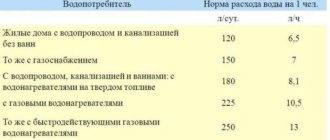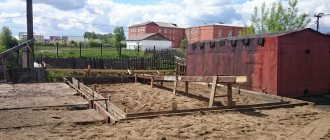- Inheritance of a residential building by law and by will
- Documents for registration of inheritance
- Inheritance of a share in a private house
- Rights of persons living in the house
- Inheriting a house in the village
- Selling a house
A residential building, as well as other real estate, can be obtained by inheritance, both by will and by law. If there are several heirs, you can become an heir to a share of a residential building. Registration of a residential building received by inheritance in most cases presents significant difficulties for the heirs.
In this article we will look at the procedure for inheriting a residential building by will and by law after the death of the testator, the list of documents required to register an inheritance for a residential building, and the features of inheriting a house in a village. In addition, we will consider the preferential rights of inheritance of persons living in a house being inherited and the issues of selling an inherited house or its share.
How to enter into inheritance rights?
To enter into an inheritance, grounds are required. The main one is the death of the testator. There are two ways to enter into inheritance:
- if a citizen made a will before his death, then it will be the main document for determining who will become the heir to the property;
- How to enter into an inheritance in the absence of a will will be determined by the Civil Code of the Russian Federation.
After an heir has been identified, each of them decides whether to accept or refuse the inheritance.
To enter into inheritance rights to real estate and land, both by will and by law, an heir:
- writes an application to open an inheritance case, as a result of which he is issued a certificate of inheritance;
- actually accepts land and real estate, which presupposes the actual use and ownership of the site.
Contacting a notary
Contacting a notary when receiving an inheritance is an obligatory part of the entire procedure , during which a notary business is opened. After that, the specialist collects all the necessary documents that will come to him from the heirs. at this time they also draw up an application for the issuance of a certificate of inheritance.
Documentation
Before contacting a notary to inherit a house and land, you must prepare a list of documents, which includes:
- general civil passport of the heir;
- documents confirming relationship with the deceased (for example, birth certificate, marriage certificate, etc.);
- original death certificate of the citizen;
- documents on the basis of which the testator had ownership rights to real estate (for example, an extract from the Unified State Register of Real Estate) and the paper on the basis of which this right arose (sale and purchase agreement, privatization);
- an extract from the home book at the place of residence of the deceased;
- if there is a will.
All papers are submitted to the notary in their original form.
The package of documents described above is the main one, however, depending on the situation, it may be supplemented for registration of a house and land plot:
- cadastral passport and land plot plan;
- certificate of cadastral value of real estate;
- an act on the assessment of the value of real estate by a specialist;
- certificate of absence of debts.
What to do if some papers are missing?
It is not always possible to collect all the documents that are needed to properly formalize an inheritance case. Title documents that confirm ownership of property by the deceased, as well as additional papers, can be restored or copies can be obtained from the relevant structures:
- Rosreestr.
- Archive.
- Bureau of Technical Inventory.
Obtaining a certificate
According to Article 1162 of the Civil Code, a certificate of inheritance is issued at the written request of the heir after acceptance of the inheritance.
The very right to own the house and land comes on the day of its opening. The certificate only confirms the fact of acquisition of the property, however, even in its absence, the citizen has the full right to use the plot as inherited property. The certificate is issued after six months established by the Civil Code for accepting an inheritance, regardless of the method of inheritance, but it can be obtained earlier than this period if there is a need to dispose of inherited property.
The inheritance certificate contains the following information::
- date of issue;
- information about the notary who compiled and issued it;
- reference to the law on the basis of which the certificate was issued: by inheritance or kinship;
- information about the testator and the date of his death;
- information about the heir;
- composition of inherited real estate, its location, cadastral value;
- notary's signature with seal.
Below you will see what a sample inheritance certificate looks like:
If there are two or more heirs, they may be issued a common certificate or, at their request, a notarized document for each of them, which indicates:
- real estate and land that are inherited;
- a certain share that is assigned to the heir receiving this document;
- information about other shares that were issued to the remaining heirs.
The registration certificate is issued after payment of the state fee.
Registration of ownership
Registration of ownership takes place at the MFC or Rosreestr. Depending on the situation, the required package of documents may vary. In this case you will need:
- certificate of inheritance;
- receipt of payment of state duty;
- the heir’s passport or a notarized power of attorney, if the heir himself cannot appear for the procedure.
It is possible to submit documents electronically through the State Services portal or the official website of Rosreestr. But in this case, an enhanced electronic signature will be required from the applicant.
Legal aspects
A testamentary disposition does not limit the testator to the list of obligatory persons for inheritance. The owner can transfer all owned property to relatives, friends, other individuals or legal entities, including the state. The testator has the right to transfer the house to one of the heirs according to the will, and divide the land in shares as a personal plot among other heirs.
In accordance with the explanations given in paragraph 79 of the resolution of the Plenum of the Supreme Court of the Russian Federation dated May 29, 2012 No. 9 “On judicial practice in inheritance cases,” land plots and buildings, structures, and structures located on them act as independent objects of civil turnover (Article 130 of the Civil Code of the Russian Federation), therefore the testator has the right to make separate orders in relation to them. GARANT system: https://base.garant.ru/71878434/#ixzz6HKCPPRl1
The only mandatory condition is the presence of an extract from the Unified State Register of Real Estate, confirming ownership of the house and land. If the land or the constructed structure does not belong to the owner, then the will will not be certified by a notary due to the fact that only the owner has the right to transfer ownership of any thing, even posthumously.
Entering into an inheritance of a house accompanies the right to use the part on which the constructed structure is located, on similar conditions and to the extent previously used by the testator (Article 35 of the Land Code of the Russian Federation). If the building becomes the property of several owners, then the order of use of the land is determined in proportion to the shares of real estate ownership.
When alienating a house or part of a structure belonging to one owner, the land under the building is alienated in parallel, with the exception of:
- physical impossibility of allocation in full size (for example, if the building has several floors, and the owner owns only one);
- being under the terms of an easement (within the limited right to use land that does not belong to the owner by virtue of being assigned to a certain category).
Registration of a house under a will automatically includes the land plot located directly under the building, with the exception of the land being under arrest, pledged or in municipal ownership.
How much does the registration procedure cost?
Since the registration of the relevant rights and the issuance of a certificate of inheritance is carried out by a notary office , she will have to pay:
- Depending on the region of residence, the service for registering a house and land plot by inheritance averages 5,000 rubles.
- Issuance of a certificate of ownership - 3200 rubles.
You will also have to pay to the state treasury:
- The state duty for heirs of the first or second stage is 0.3%, and for others - 0.6% of the estimated value of the land plot and house, but not more than 100 thousand rubles.
- For registration of property rights - 2000 rubles for individuals.
- A request to any government agency will cost 300 rubles.
Thus, based on the presented tariffs, you can determine the approximate amount that will be spent when registering an inheritance.
Moment of inheritance
The moment of inheritance is considered to be the day when a person receives a notarial certificate confirming the transfer of property rights. Such a certificate is given to each heir no earlier than six months after the death of the testator.
Attention! The Civil Code provides for the possibility of issuing such a certificate earlier than the specified period, but only if the notary is completely confident that other people will not make their claims to the property. That is, after confirming that there is only one candidate for the property.
Despite the fact that the right to inheritance arises with the receipt of a notarial certificate, it will be possible to dispose of the property only after the re-registration of property rights to the object. And after the re-registration of property rights, a person will receive a confirming document allowing full use and disposal of the property. Including selling it, donating it, passing it on by inheritance, renting it out.
Deadlines
In order to enter into an inheritance, the country's legislation gives a six-month period , which is relevant in virtually all cases. Six months are counted from the date of death of the person who left the inheritance, and during this time all documents must be prepared without fail.
You should not put off such efforts, since missing a deadline will require going to court , and often – new work by a notary to allocate a share in the inheritance if one of the relatives has already received it.
Sometimes we are talking about only a three-month period - this happens when the heirs of the previous stage refused or were found unworthy , and the inheritance passes to the next stage. In this case, you need to act even faster.
Important! However, if the deadline has passed, you should not despair. You can contact a notary, and if other relatives do not mind, you will receive your share. If problems arise, they are taken to court.
If the absence was for a valid reason, it is necessary to explain the circumstances and provide confirmation, for example, a certificate of hospital stay. If you could not find out about the person’s death in time, or the information was suppressed by relatives, this is also worth emphasizing.
What should an heir know when registering a house after the death of his parents?
Let us define the basic concepts that are encountered when initiating the process under consideration.
The inheritance of a deceased person (mother, father) is all real and movable property that belonged to him during his lifetime.
Real estate is apartments, land, buildings.
Everything else - money, vehicles, securities, products of intellectual or copyright work belong to the second group.
In accordance with Art. 1111 of the Civil Code of the Russian Federation, inheritance is accepted in two versions:
- in law;
- on the basis of a will.
Therefore, the inheritance of the house after the death of the mother in accordance with Art. 1152 of the Civil Code of the Russian Federation is adopted both on both grounds simultaneously, and on any of them separately.
The first thing you need to do is obtain a certificate from the registry office confirming the death of a parent and only then declare your rights to the property.
Transfer of a land plot from a deceased citizen to his heirs on the basis of Art. 1118 of the Civil Code of the Russian Federation, occurs, as in the case of home ownership, on general principles, without restrictions or additional permits.
Within six months after the death of their parents, children are required to present their rights to their property (Article 1154 of the Civil Code of the Russian Federation).
What to do if you didn’t have time to contact a notary on time
Sometimes citizens miss the six-month deadline during which they must present their rights to the property of deceased relatives. Various reasons may contribute to this.
The law indicates that if the period for accepting the property of the deceased has expired, it can only be restored through a judicial procedure.
To do this, you will need to draw up a statement of claim and provide:
- Evidence indicating family ties with the deceased.
- Original will, if available.
- Written evidence indicating a missed deadline.
An important point in this matter will be the nature of the obstacles that prevented the son or daughter from arriving on time. They must have a valid motive, or due to force majeure.
Other circumstances are also taken into account:
- being on a long business trip abroad;
- serious illness;
- serving a sentence in penitentiary institutions;
- being under investigation in a pre-trial detention center.
Note! Heirs can go to court for another reason - if their rights are violated by a notary or third parties. This number includes scammers in the real estate market.
By will
If the deceased indicated his will regarding property in the will, it is necessary to contact a notary so that he can find this will and execute this will. According to the will, the house can be passed not only to close relatives, but also to distant relatives, or even to strangers , if the deceased so decided. It is important that the will be drawn up when the person is in an adequate state, without pressure on him, in a good mind. Otherwise, it can be challenged.
Important! Sometimes a will can even be challenged legally. There is a nuance regarding the obligatory share, which some relatives must receive in any case, even with other orders of the testator.
Obligatory heirs are minors, disabled persons, and dependents . If at the time of opening the inheritance they were dependent on the deceased for at least a year, they are entitled to a mandatory share. It is intended for persons living together in this house with the deceased, even if they are not his closest relatives. This is worth remembering.
Confirmation of family ties
The notary needs documents to confirm family ties; this is important when inheriting by law.
Divorce, marriage and birth certificates can be provided as evidence. These papers allow you to judge the degree of relationship; they are provided in the form of originals with photocopies.
Confirmation of kinship can be oral, from other neighbors and relatives, or indirect - using third-party documents and marks; this is relevant if it is necessary to prove kinship through the court.









